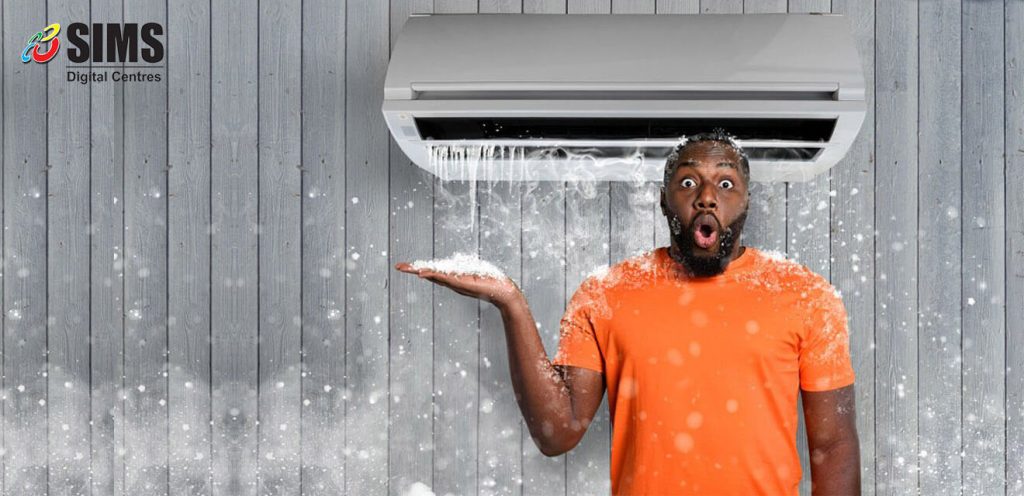As the seasons transition and temperatures dip, many homeowners begin to contemplate the implications of running their air conditioning systems. It’s a common scenario: the sun may be setting earlier, and brisk winds rattle the trees outside, yet you feel the familiar urge to turn on your air conditioning unit. It beckons a pivotal question—can I run my AC when it’s cold outside? Let’s embark on a journey to unravel this fascinating dilemma.
To address this inquiry, it is essential to start with an understanding of how air conditioning units function. AC units are designed primarily to extract heat from indoor spaces, expelling it outside, thereby cooling the air within. However, when external temperatures plummet, the mechanics of this system may become questionable. Can it work efficiently, or is it a futile endeavor?
The first point to consider is the temperature threshold of your air conditioning unit. Most residential systems are designed to operate effectively within a specific temperature range, typically between 60°F and 100°F. Running your AC when outdoor temperatures dip below this threshold can lead to inefficiencies, causing the system to work harder than necessary. This extra effort not only results in increased energy consumption, but it can also lead to unnecessary wear and tear on your unit, potentially shortening its lifespan.
Moreover, an intriguing phenomenon occurs when the temperature outside is considerably colder than what your AC unit is accustomed to handling. If you engage your AC during chilly evenings, you might find that the moisture it extracts from the air condenses upon the coils and components. This condensation could lead to frost formation, rendering the unit inefficient and even damaging it over time. So, as inviting as the thought may be, running your AC in cold conditions can indeed pose unexpected challenges.
Yet, let us ponder an alternate perspective. Air conditioning systems are not merely for cooling; they are also adept at dehumidifying. Thus, in certain situations, especially during muggy transitional seasons, the running of an AC unit can provide respite from humidity, despite cooler temperatures outdoors. The key lies in discerning the unique climatic circumstances you are facing. If the external air is carrying excessive moisture, your air conditioner can serve as a formidable ally in sustaining a comfortable indoor environment.
On this note, let’s delve deeper into the dual functionality of modern HVAC systems. Many contemporary AC units come equipped with heating capabilities—often referred to as heat pumps. These systems are designed to reverse the refrigeration process, providing heating in colder months. For heat pump users, the question may morph into ‘Should I run my heat pump when it’s cold outside?’ Understanding how these systems operate can profoundly shift your perspective, highlighting the versatility they offer throughout the year.
Consider this: if your heating mode operates via a heat pump and outdoor temperatures are moderate, employing this feature can be an energy-efficient method to warm your home. However, running an AC unit for cooling while it’s cold outside—outside of the dehumidifying context—is counterintuitive and may prove cost-ineffective.
As you navigate this seasonal conundrum, evaluate your specific needs. Are you combating humidity rather than seeking a chill? Consider adjusting the thermostat settings and opting for ‘dry’ mode rather than full cooling mode. This adjustment minimizes excessive energy use yet allows you to maintain comfort. Furthermore, employing fans or other supplemental heating methods can bolster warmth without wholly relying on your air conditioning system.
A vital aspect of this discussion also revolves around energy efficiency and environmental impact. Running your AC unnecessarily, especially in cold conditions, can lead to exorbitant energy costs and increased carbon emissions. In a world increasingly aware of sustainability, rethinking our reliance on such systems becomes crucial—transforming how we view our comfort in relation to nature’s whims.
Lastly, when considering maintenance, it’s invaluable to adhere to routine servicing. Ensuring that your air conditioning unit is in optimal condition can mitigate many of the complications discussed. Neglecting this aspect will only exacerbate the wear on the system, particularly during those months when you decide to run it against its intended use. Regular checks and cleanings can enhance efficiency, transform performance, and ultimately prolong the lifespan of your equipment.
In conclusion, while the temptation to run your air conditioning unit during cold weather months may arise, it calls for a nuanced understanding. The implications range from energy consumption and system inefficiency to potential advantages in humidity control. Foster a mindset of versatility and adaptability, considering your unique climate challenges while prioritizing environmental consciousness. By approaching your air conditioning usage with this tempered perspective, you can navigate through the seasonal changes with both comfort and confidence.
